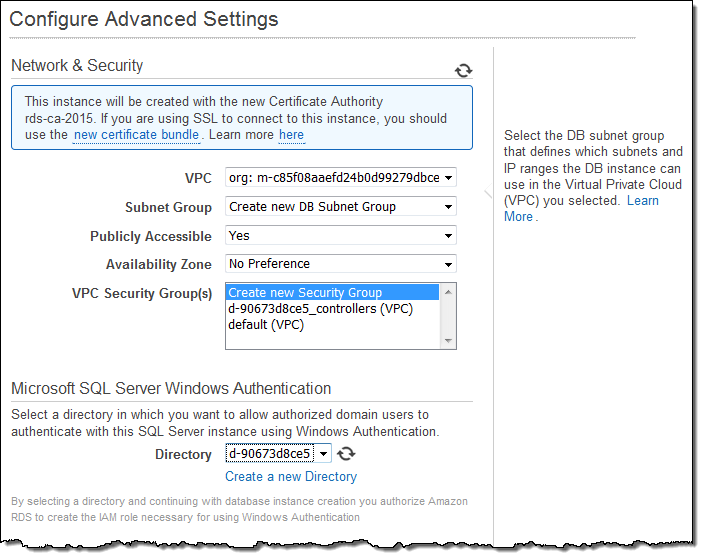AWS News Blog
Amazon RDS for SQL Server – Support for Windows Authentication
Regular readers of this blog will know that I am a big fan of Amazon Relational Database Service (Amazon RDS). As a managed database service, it takes care of the more routine aspects of setting up, running, and scaling a relational database.
We first launched support for SQL Server in 2012. Since that time we have added many features including SSL support, major version upgrades, transparent data encryption, and Multi-AZ. Each of these features broadened the applicability of RDS for SQL Server and opened the door to additional use cases.
Many organizations store their account credentials and the associated permissions in Active Directory. The directory provides a single, coherent source for this information and allows for centralized management. Given that you can use the AWS Directory Service to run the Enterprise Edition of Microsoft Active Directory in the AWS Cloud, it is time to take the next step!
Support for Windows Authentication
You can now allow your applications to authenticate against Amazon RDS for SQL Server using credentials stored in the AWS Directory Service for Microsoft Active Directory (Enterprise Edition). Keeping all of your credentials in the same directory will save you time and effort because you will no longer have to find and update each copy. This may also improve your overall security profile.
You can enable this feature and choose an Active Directory when you create a new database instance that runs SQL Server. You can also enable it for an existing database instance. Here’s how you choose a directory when you create a new database instance (you can also create a new one):

To learn more, read about Using Microsoft SQL Server Windows Authentication with a SQL Server DB Instance.
Now Available
This feature is now available in the US East (N. Virginia), US West (Oregon), Europe (Ireland), Asia Pacific (Sydney), Asia Pacific (Tokyo), and Asia Pacific (Singapore) Regions and you can start using it today. There is no charge for the feature, but you will pay the standard rate for the use of AWS Directory Service for Microsoft Active Directory.
— Jeff;